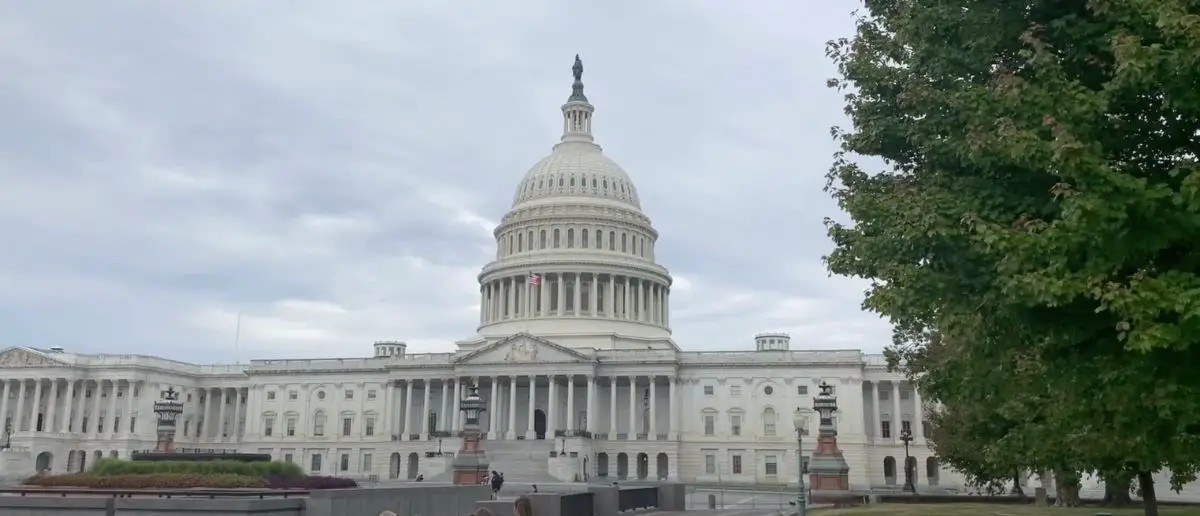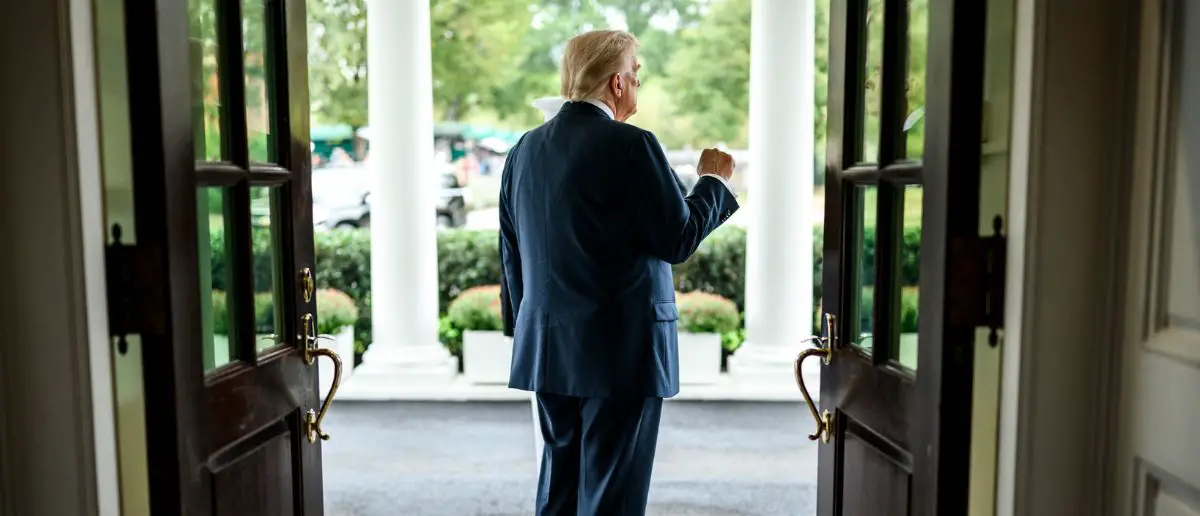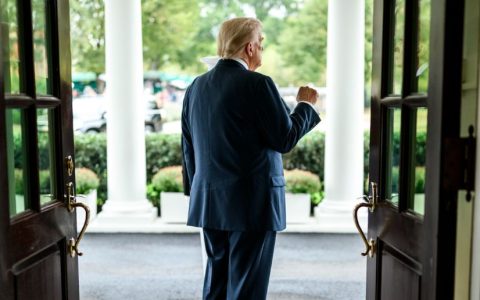
The establishment has been saying that the election system is totally secure. But that lie is crumbling.
And now Washington, D.C. has been utterly shocked by this Michigan voter fraud report.
Michigan’s Non-Citizen Voting Scandal Proves Election Fraud Critics Right
For years, those raising alarms about election fraud have been dismissed as conspiracy theorists, their concerns brushed aside by officials like Michigan Secretary of State Jocelyn Benson. But the tide has turned. A recent revelation that 15 non-citizens voted in Michigan’s 2024 general election has shattered Benson’s narrative, vindicating those who’ve long demanded stronger voter integrity measures. What was once labeled as baseless fear-mongering now stands as undeniable fact, forcing a reckoning on the state and national stage.
Benson, a Democrat, has spent much of her tenure insisting that non-citizen voting is a non-issue in Michigan. As recently as September 2024, she testified before the House Administration Committee, confidently declaring, “We’re doing everything we can to ensure that non-citizens are not able to vote and that only U.S. citizens vote in our election, and it’s working.” She doubled down, adding, “There is no evidence that non-citizens are voting. If they were, it would be easy to prove since voter records are public. And despite numerous organizations spending a lot of money to try to convince people that non-citizens are voting, none of these groups have actually been able to provide any evidence of it.” Those words now ring hollow.
Just two months later, a state review exposed the cracks in Benson’s assurances. By cross-referencing registered vehicles with voting records, Michigan uncovered 15 “credible” cases of non-citizens who cast ballots in the November 2024 election. Thirteen of these individuals were referred to the Michigan Attorney General’s office for potential criminal charges, while one has since passed away, and another is under investigation by the state’s Office of Investigative Services. The discovery, reported by local outlet WILX, sent shockwaves through a state already grappling with questions about election security.
The findings didn’t stop there. A Chinese foreign national student at the University of Michigan turned himself in after allegedly registering to vote and casting a ballot in the same election. Now facing two felony charges—false swearing to register to vote and attempting to vote as an unqualified elector—the case has further exposed vulnerabilities in Michigan’s election system. For those who’ve been sounding the alarm, this is no surprise; it’s validation.
Benson, however, has downplayed the scandal. In a statement last week, she said, “This is a serious issue, one we must address with a scalpel, not a sledgehammer. Only U.S. citizens can legally register and vote in our elections. Our careful review confirms what we already knew – that this illegal activity is very rare.” She pointed out that the 16 non-citizens who voted—15 from the review plus the University of Michigan student—represent just “0.00028% of the more than 5.7 million votes cast by Michiganders in the presidential election.” But to critics, her minimization misses the point: even one illegal vote is too many.
“While we take all violations of election law very seriously, this tiny fraction of potential cases in Michigan and at the national level do not justify recent efforts to pass laws we know would block tens of thousands of Michigan citizens from voting in future elections,” Benson added. Her resistance to reforms like proof-of-citizenship requirements has drawn sharp criticism from those who argue that such measures are common sense. Michigan House Speaker Pro Tempore Rachelle Smit, a Republican, didn’t hold back.
“It’s deeply troubling to me that our Secretary of State told Congress that non-citizens weren’t voting in our elections just a couple months before November,” she said. “Now she admits they are voting in our elections, and at least 15 of them had their ballots tabulated and counted. That’s 15 Michigan taxpaying residents who had their votes illegally canceled out by people who shouldn’t have been at the polls to begin with.”
Smit’s outrage resonates with many Michiganders who feel betrayed by a system that allowed these breaches to occur. The fact that Benson’s office failed to respond to requests for comment only fuels the perception that she’s dodging accountability. Meanwhile, Michigan House Representative Bryan Posthumus, another Republican, took to X to express his frustration: “First it was 1, now it’s 15. The truth is, we have no idea how many. And now that everyone knows the loophole exists, how many more if we don’t close it!” His words capture the urgency felt by those who’ve been vindicated by these revelations.
Posthumus is leading the charge for change, authoring a constitutional amendment that would mandate proof of citizenship and voter ID for both in-person and absentee voting in Michigan. The proposal, currently working its way through the state House, also includes provisions for provisional ballots, allowing voters without ID six days post-election to verify their identity. If it secures a two-thirds majority in both the House and Senate, Michigan voters will decide its fate in the next general election. For supporters, it’s a long-overdue fix to a broken system.
Benson, however, has resisted such measures. In February 2024, before the non-citizen voting cases came to light, she dismissed the amendment, saying it “would be taking a chainsaw to our election system when we’re trying to address one specific, isolated circumstance.” Instead, she advocated for narrower solutions, like provisional ballots or additional verification for same-day voter registration. Critics argue that her approach is too little, too late, especially now that the scale of the problem is undeniable.
The vindication of election integrity advocates extends beyond Michigan. On the federal level, the Republican-led U.S. House of Representatives is pushing the Safeguard American Voter Eligibility (SAVE) Act, which would require documentary proof of U.S. citizenship for federal voter registration. The bill, reintroduced by Representative Chip Roy of Texas in January 2025, passed the House last year but was stalled by the Democratic Senate. Now, with renewed momentum, it’s gaining traction as a direct response to cases like Michigan’s.
President Donald Trump has also seized on the issue, issuing an executive order in March 2025 to enforce citizenship requirements for federal elections. The order directs the Election Assistance Commission to mandate documentary proof of citizenship on national mail voter registration forms within 30 days. “To enforce the Federal prohibition on foreign nationals voting in Federal elections,” the order states, it ensures that states “record on the form the type of document that the applicant presented as documentary proof of United States citizenship.” For those who’ve long warned about non-citizen voting, Trump’s move is a triumph.
PRESIDENT TRUMP SIGNS SWEEPING NEW ELECTIONS ORDER.
1) Requires proof of citizenship on state voter registration forms.
2) No more counting ballots received after election day.pic.twitter.com/6HnUIZqkoY
— Citizen Free Press (@CitizenFreePres) March 26, 2025
But not everyone is on board. Democratic attorneys general from 19 states filed a lawsuit against Trump’s executive order on April 2, 2025, challenging its constitutionality in Massachusetts federal court. They argue that requiring proof of citizenship infringes on voting rights, a stance that echoes Benson’s opposition to similar measures in Michigan. The legal battle emphasizes the deep divide over election integrity, with one side celebrating vindication and the other digging in against reform.
Michigan’s scandal has also sparked comparisons to other states. Fifteen states, including Alabama, Arizona, and Florida, already require proof of citizenship for voting, a fact that supporters of Michigan’s proposed amendment point to as evidence of its feasibility. Meanwhile, some municipalities in California, Maryland, Vermont, and Washington, D.C., allow non-citizens to vote in local elections, a policy that horrifies election integrity advocates who see it as an invitation to fraud.
Attorney General Dana Nessel, a Democrat, has vowed to hold those responsible accountable. Her spokesperson, Danny Wimmer, stated, “Attorney General Nessel is, of course, disappointed to learn any number of non-citizens were able to cast ballots in our recent elections, and Michiganders should be assured that those criminally responsible will be held accountable to the fullest extent of the law.” But for many, her words are cold comfort in light of Benson’s earlier denials.
The fallout from Michigan’s non-citizen voting cases has shifted the conversation around election fraud. Those who were once mocked for raising concerns now stand on firmer ground, their warnings proven prescient. The 15 confirmed cases may seem small in the context of 5.7 million votes, but to critics, they represent a breach of trust that demands action. Each illegal ballot, they argue, dilutes the voice of a lawful voter—a principle that transcends percentages.
Stay tuned to the DC Daily Journal.





